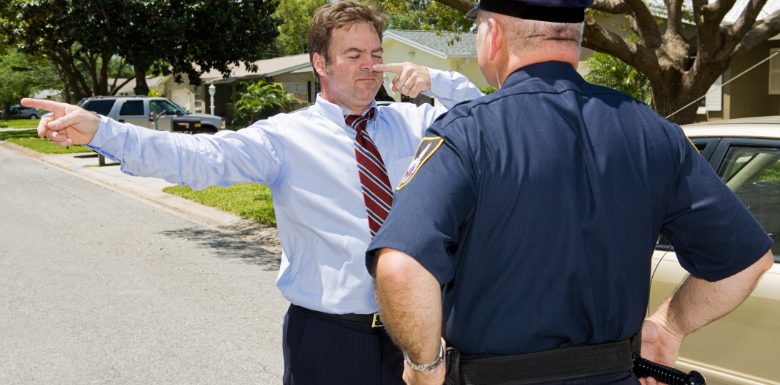Can I Refuse Standardized Field Sobriety Tests in NC?
On behalf of Randall & Stump, PLLC in Charlotte DWI Attorney, DUI/DWI, DWI on Thursday, October 4, 2018

For most people, being stopped for DWI and being asked to perform standardized field sobriety tests brings about a large amount of stress. Further, the tests can return false positives more often than you might think. If you’re pulled over or stopped at a sobriety checkpoint, you might wonder if you can refuse to take a standardized field sobriety test (SFST). Under North Carolina law, you are not required to perform a SFST or any other roadside testing. The officer cannot force you to perform these tests. Furthermore, you will not have your license immediately revoked for your refusal of roadside testing.
The results of a standardized field sobriety test may show clues that you were intoxicated when you were not. In addition, there are numerous reasons that evidence from these results can be discarded or disallowed from a case. Because of this, many cases present opportunities for proper challenges to the administration and interpretation of these tests. Contact a Charlotte DWI lawyer from Randall & Stump, Criminal Defense Attorneys if you’re facing charges for driving while under the influence in North Carolina.
To schedule a free and confidential case consultation, use the online form or call (980) 237-4579 today.
Standardized Field Sobriety Tests in NC
There are three field sobriety tests that have been declared “standardized” by the National Highway Traffic Safety Administration (NHTSA). The first is the horizontal gaze nystagmus (HGN) test. If you’re asked to complete this test, an officer will watch your eyes as you follow a small object, such as a pen. The officer will be watching for involuntary jerking of your eyes or nystagmus, as your eyes move side to side.
The second SFST is the walk-and-turn. Among other things, the test requires walking in a straight line for a predetermined number of steps, then turning around in a particular manner, and walking back. An officer will watch to see if you have trouble, for example, walking a straight line, miss walking heel to toe, or have issues maintaining your balance.
The third test is the one-leg stand. You’ll be required to stand on one foot and count in a certain way until he/she tells you to stop. During the test, an officer will look for clues of impairment, including, but not limited to:
- Hopping
- Swaying
- Putting your foot down too soon
North Carolina Law Allows You to Refuse Standardized Field Sobriety Tests
In North Carolina, you are allowed to decline SFSTs. Your driver’s license won’t automatically be suspended for not taking any tests at the roadside. You may also decline a preliminary breath test at the roadside without consequence. Be advised you may only refuse a roadside preliminary breath test without consequence. The arresting officer can ask you to take a more precise breath test at the station. You can refuse this test, but doing so will result in an automatic one-year license revocation.
Should I Refuse to Take Standardized Field Sobriety Tests?
When you’re evaluated for driving while impaired in Charlotte, North Carolina, odds are you’re being investigated by a member of the DWI task force and every aspect of your stop can be used against you. This means that failed SFSTs will be entered as evidence at trial in your DWI case to prove your guilt. We always advise, when asked, to refuse the roadside testing due to the nature of the tests and the unnatural actions you will be asked to perform.
Contact a DWI Lawyer at Our Firm for Help
If you’re facing a DWI in North Carolina, your first call should be to an a skilled and experienced DWI lawyer. At Randall & Stump, Criminal Defense Attorneys, we can help if you’ve been accused of driving while intoxicated. Our criminal attorneys in Charlotte, NC know your rights concerning standardized field sobriety tests, what the officers are trained to look for during the tests, and can help you make sure you remain informed every step of the way while mounting a defense in your case.
To schedule your free case evaluation, contact us today at (980) 237-4579.
